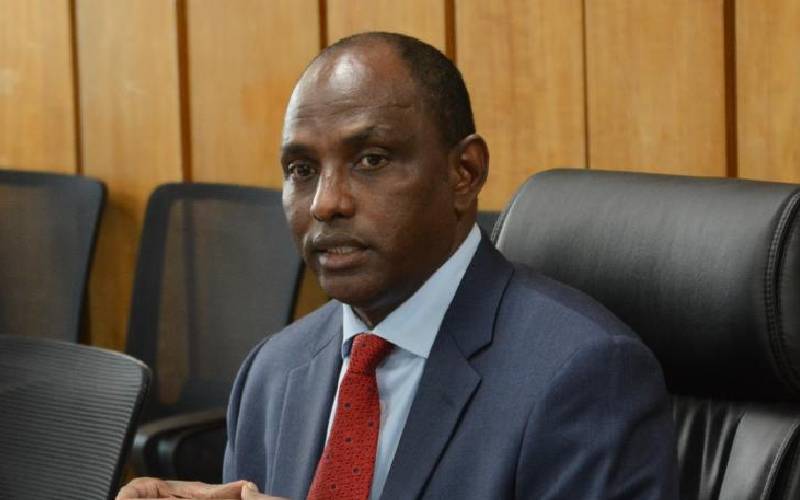Treasury CS Ukur Yatani seeks to channel resources directly to micro, small and medium enterprises. The government received Sh103.4 billion as investment revenue in the financial year 2019/20, helping it boost its coffers depleted by Covid-19. This was nearly a four-fold increase compared to Sh26.8 billion that the Exchequer received in the previous financial year. Three quarters of this cash came from regulatory bodies with the National Treasury Cabinet Secretary Ukur Yatani for the first time, collecting surplus funds from the regulators. As a result of the huge increase in investment revenue, the Kenya Revenue Authority (KRA) avoided the shame of collecting, for the first time in recent periods, fewer revenues compared to the previous financial period. Had investment revenue remained flat, the taxman would have collected less revenue compared to the 2018/19 financial year. In fiscal year ending June 30, revenue collection hit Sh1.6 trillion collected, compared to Sh1.58 trillion collected in FY 2018/19. This represents a performance rate of 97.9 per cent, coming at a time when most economic activities had been hampered by Covid-19, particularly in the fourth quarter of the period under review. “The performance is favourable and matches the prevailing economic indicators, especially the projected Gross Domestic Product (GDP) growth of between 1.5 per cent and 2.3 per cent in 2020,” said KRA Commissioner General Githii Mburu. However, President Uhuru Kenyatta last year ordered parastatals to surrender surplus cash to the Treasury, as the government looked for ways to finance its development projects and pay debts that have now gone through the ceiling. Pending bills Head of Public Service Joseph Kinyua, in a letter to Mr Yatani emphasized President Kenyatta’s directives, including the immediate stoppage of State corporations to trade in Treasury Bills and expeditious payment of all pending bills. “Pursuant to directives to furnish my office with reports on the progress made to comply by all affected State corporations, please note that the government has committed to complete these payments by November 30, 2019,” said Kinyua. Besides implementing austerity measures which saw most State corporations suspend funding for non-essential expenditures such as tea and snacks, the government also ordered liquidation of surplus funds invested in Treasury Bills and other investments. The rest of the money came from blue-chip companies in which the State has a stake, particularly Safaricom and KCB. Safaricom and KCB Group boosted Treasury’s coffers with dividend payout of Sh26 billion. […]
State nets Sh103b from agencies and Safaricom payout
